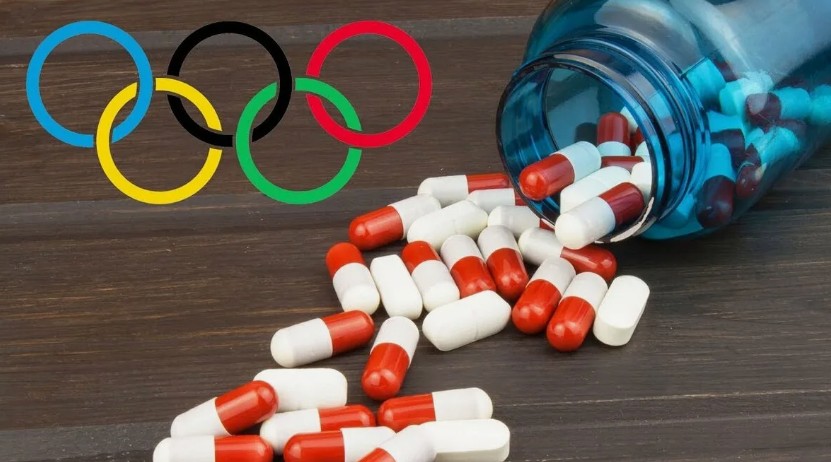The Dark Side of Sports: Doping, Corruption, and Other Issues
1,140 views, 29.07.2024
Sports are often celebrated for their ability to inspire, unite, and promote physical and mental well-being. However, beneath the surface of the spectacle and competition lies a darker side marked by doping, corruption, and various other issues that threaten the integrity of sports. This article delves into these problems, exploring their impact on athletes, fans, and the broader sports community.
Doping in Sports
History and Prevalence
Doping, the use of banned substances or methods to enhance athletic performance, has a long and contentious history in sports. From the early use of stimulants to the sophisticated doping programs of today, the quest for an edge has led many athletes down this illicit path.
- Early Instances. The use of performance-enhancing substances dates back to ancient Greece, but modern doping became prominent in the 20th century.
- High-Profile Cases. The East German doping program in the 1970s and 1980s, the BALCO scandal involving several top American athletes, and the Lance Armstrong case are some of the most notorious examples.
Types of Doping
- Anabolic Steroids. Used to increase muscle mass and strength.
- Erythropoietin (EPO). Enhances oxygen delivery to muscles by increasing red blood cell production.
- Human Growth Hormone (HGH). Promotes muscle growth and recovery.
- Blood Doping. Involves transfusions or the use of EPO to boost red blood cell count.
Consequences
- Health Risks. Doping poses significant health risks, including heart disease, liver damage, hormonal imbalances, and psychological effects.
- Ethical Issues. It undermines the fairness and integrity of competition, giving doped athletes an unfair advantage.
- Reputational Damage. Doping scandals tarnish the reputations of athletes, teams, and entire sports.
Corruption in Sports
Forms of Corruption
Corruption in sports can take many forms, from match-fixing and bribery to embezzlement and fraud. These corrupt practices erode the credibility of sports organizations and competitions.
- Match-Fixing. Deliberate manipulation of the outcome of a game or match, often linked to illegal betting.
- Bribery. Offering or accepting bribes to influence decisions, such as the selection of host cities for major events.
- Financial Misconduct. Misuse of funds within sports organizations, including embezzlement and money laundering.
Notable Examples
- FIFA Scandal. In 2015, several top officials of FIFA, the governing body of world soccer, were indicted on charges of racketeering, wire fraud, and money laundering.
- IOC Bribery Scandal. The Salt Lake City bid for the 2002 Winter Olympics was marred by allegations of bribery to secure votes from International Olympic Committee members.
- Cricket Match-Fixing. The late 1990s and early 2000s saw several high-profile match-fixing scandals in cricket, involving players from South Africa, India, and Pakistan.
Impact
- Loss of Trust. Corruption leads to a loss of trust among fans, sponsors, and other stakeholders.
- Financial Losses. It can result in significant financial losses for sports organizations and economies.
- Deterioration of Values. Corruption undermines the fundamental values of sportsmanship and fair play.
Other Issues
Racism and Discrimination
Racism and discrimination remain pervasive problems in sports, affecting athletes, coaches, and fans alike.
- Incidents. From racial abuse directed at players during matches to discriminatory practices within sports organizations, racism continues to plague many sports.
- Campaigns. Various campaigns and initiatives, such as FIFA’s “Say No to Racism” and the NBA’s “NBA Cares,” aim to combat these issues, but challenges persist.
Gender Inequality
Despite progress, gender inequality is still a significant issue in sports.
- Pay Disparity. Female athletes often receive lower pay and fewer sponsorship opportunities compared to their male counterparts.
- Representation. Women are underrepresented in coaching, leadership, and decision-making roles within sports organizations.
- Media Coverage. Female sports receive less media coverage, which impacts visibility and support for women’s sports.
Mental Health
The intense pressure and demands of professional sports can take a toll on athletes’ mental health.
- Stigma. Despite increasing awareness, a stigma around mental health issues persists, preventing many athletes from seeking help.
- Support Systems. While some sports organizations have implemented mental health support programs, there is still a need for more comprehensive and accessible services.
Combating the Dark Side of Sports
Regulatory Measures
Strong regulatory frameworks and enforcement mechanisms are essential to combat doping, corruption, and other issues in sports.
- Anti-Doping Agencies. Organizations like the World Anti-Doping Agency (WADA) work to enforce anti-doping regulations and promote clean sports.
- Ethics Committees. Many sports organizations have established ethics committees to address corruption and other unethical practices.
Education and Awareness
Raising awareness and educating athletes, coaches, and fans about the dangers and consequences of doping, corruption, and discrimination is crucial.
- Training Programs. Implementing training programs for athletes and officials on ethics, anti-doping, and anti-corruption measures.
- Public Campaigns. Running public campaigns to promote positive values and behaviors in sports.
Support Systems
Providing robust support systems for athletes can help address issues like mental health and discrimination.
- Mental Health Services. Offering accessible and confidential mental health services for athletes.
- Inclusion Programs. Developing programs to promote diversity and inclusion within sports organizations and events.
Conclusion
While sports have the power to inspire and unite, they are not immune to significant challenges such as doping, corruption, racism, gender inequality, and mental health issues. Addressing these problems requires a multifaceted approach involving regulation, education, and support. By tackling the dark side of sports head-on, we can preserve the integrity and positive impact of sports for future generations.




